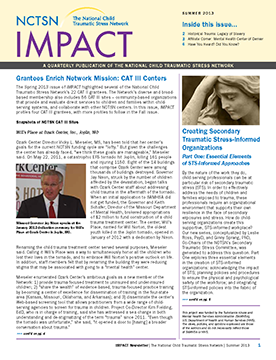
NCTSN Impact Newsletter: Summer 2013
Showcases a few of our Category III sites and the outstanding work they are doing in their centers, as well as other highlights.
The following resources on child trauma were developed by the NCTSN. To find a specific topic or resource, enter keywords in the search box, or filter by resource type, trauma type, language, or audience.

Showcases a few of our Category III sites and the outstanding work they are doing in their centers, as well as other highlights.
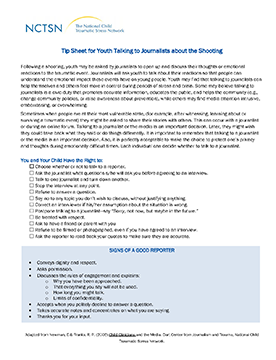
Offers information to youth, parents, and caregivers on how to talk with journalists after a mass violence event or shooting. This tip sheet describes a parent's and child’s rights when talking with journalists and details the signs of a good and respectful reporter.
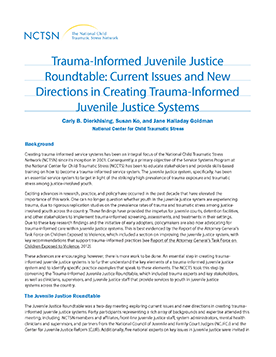
Provides an introduction to the NCTSN Trauma-Informed Juvenile Justice Roundtable.
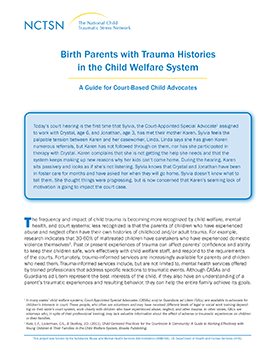
Highlights the importance for court-based advocates to understand the serious consequences that trauma histories can have for birth parents and the subsequent potential impact on their parenting.
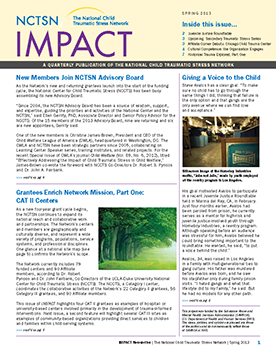
Introduces the new NCTSN Advisory Board, describes new and returning centers of the NCTSN at the beginning of this new four-year grant cycle, honors the life of a young man touched by the Juvenile Justice System, and other highlights.
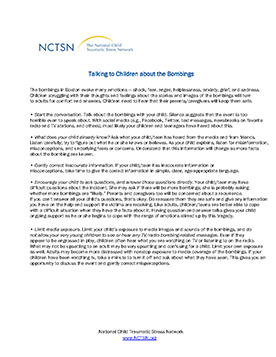
Provides information on how to talk to children about the bombings in Boston. This tip sheet describes how to talk to children about the bombings in Boston and applies to mass violence events that involve bombings in general.

Helps youth recognize that community violence does not have to dominate their lives if they understand their reactions to it, understand how to keep themselves safe, and understand how to make positive choices in dangerous times.
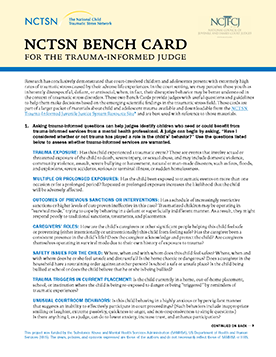
Provides judges with useful questions and guidelines to help make decisions based on the emerging scientific findings in the traumatic stress field. These bench cards assist judges and court-appointed professionals doing mental health assessment of children.
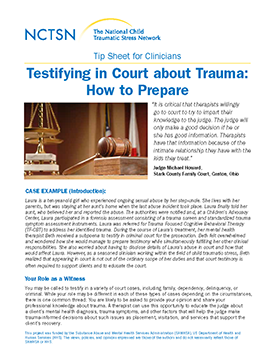
Offers guidance to clinicians called upon to testify as an expert witness for a client’s court case.
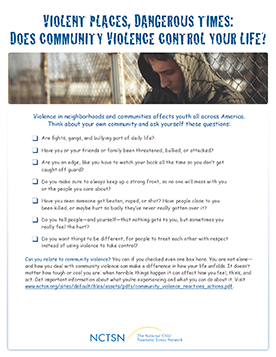
Gives questions for youth to answer to determine if they have experienced community violence.
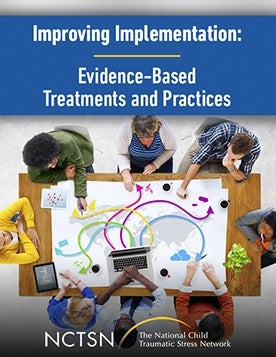
Supports NCTSN sites as they disseminate, implement, and sustain evidence-based treatments, promising practices, products, and system changes to organizations that serve children and families who have experienced trauma.
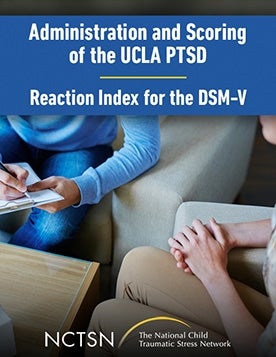
Describes the UCLA PTSD Reaction Index for DSM-5. The UCLA PTSD RI is a self-report questionnaire to screen for exposure to traumatic events and assess PTSD symptoms in school-age children and adolescents.